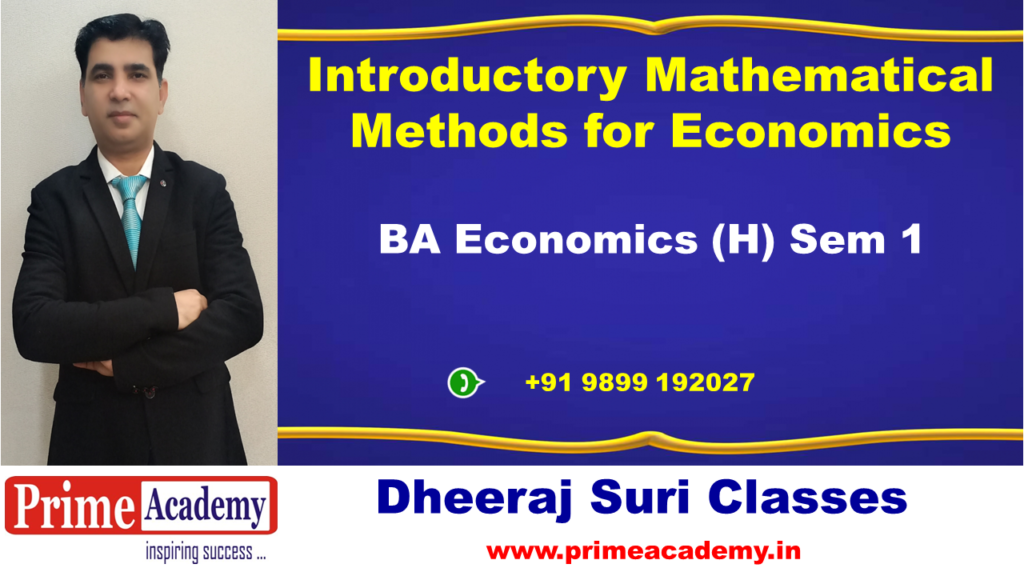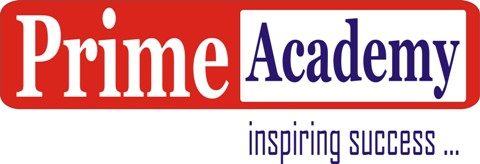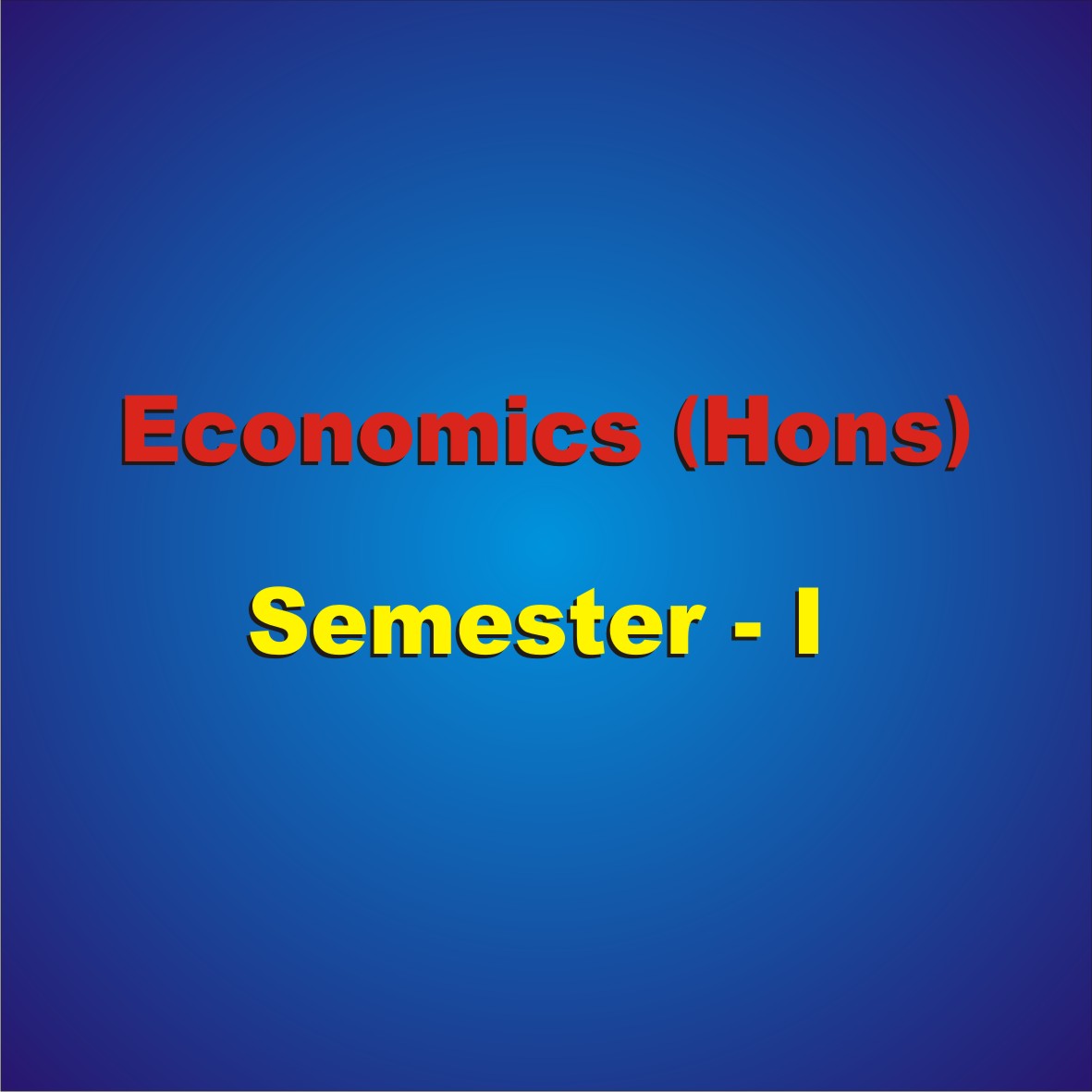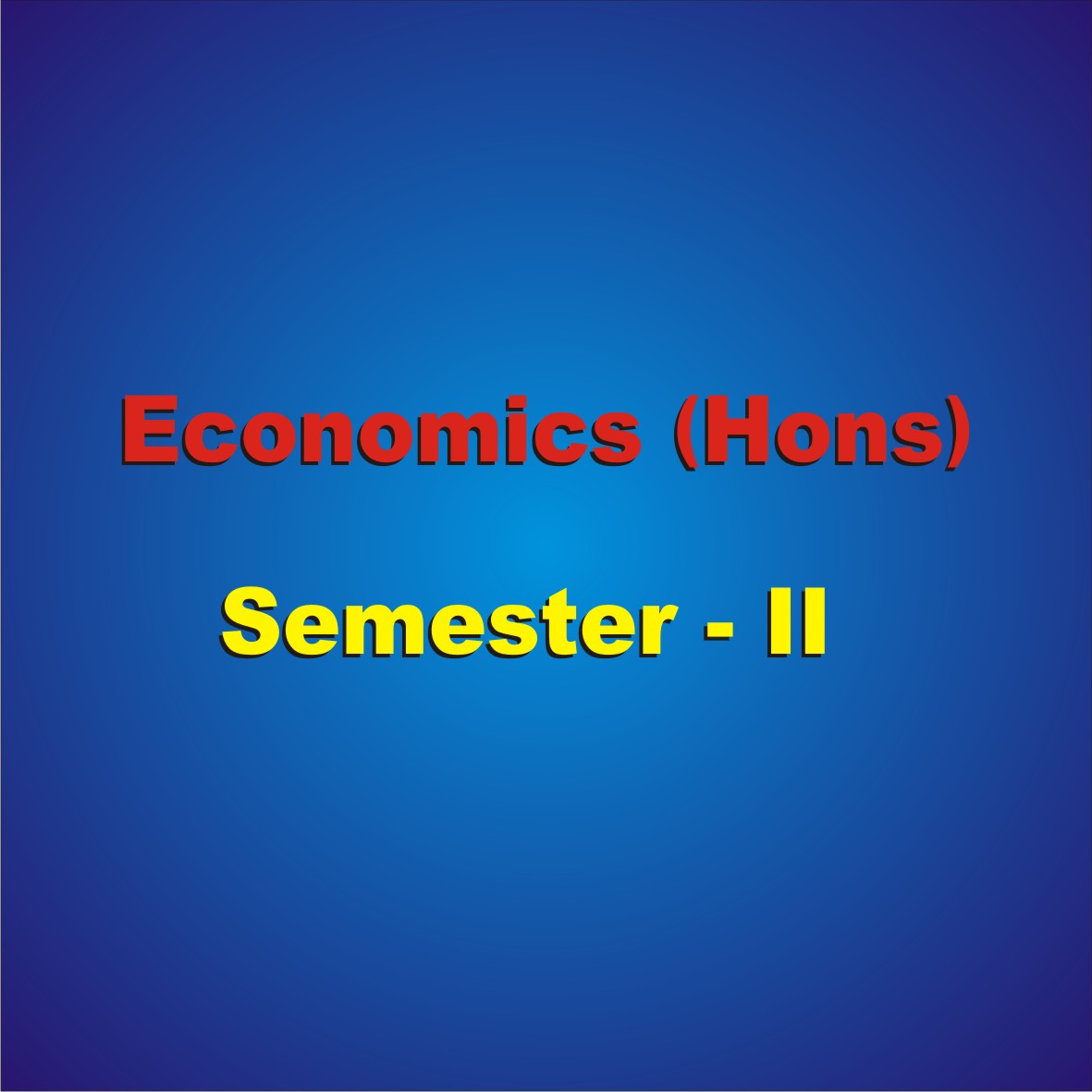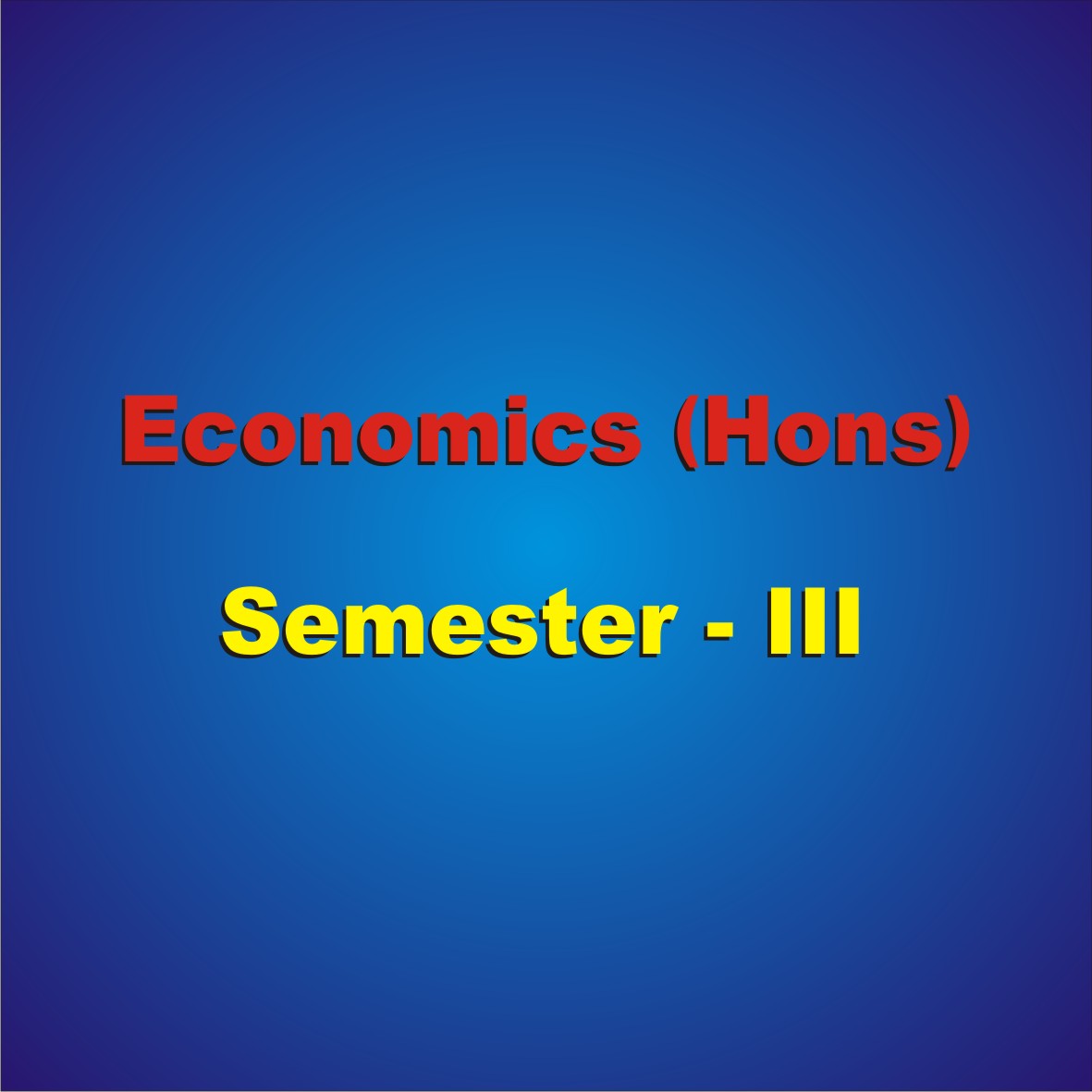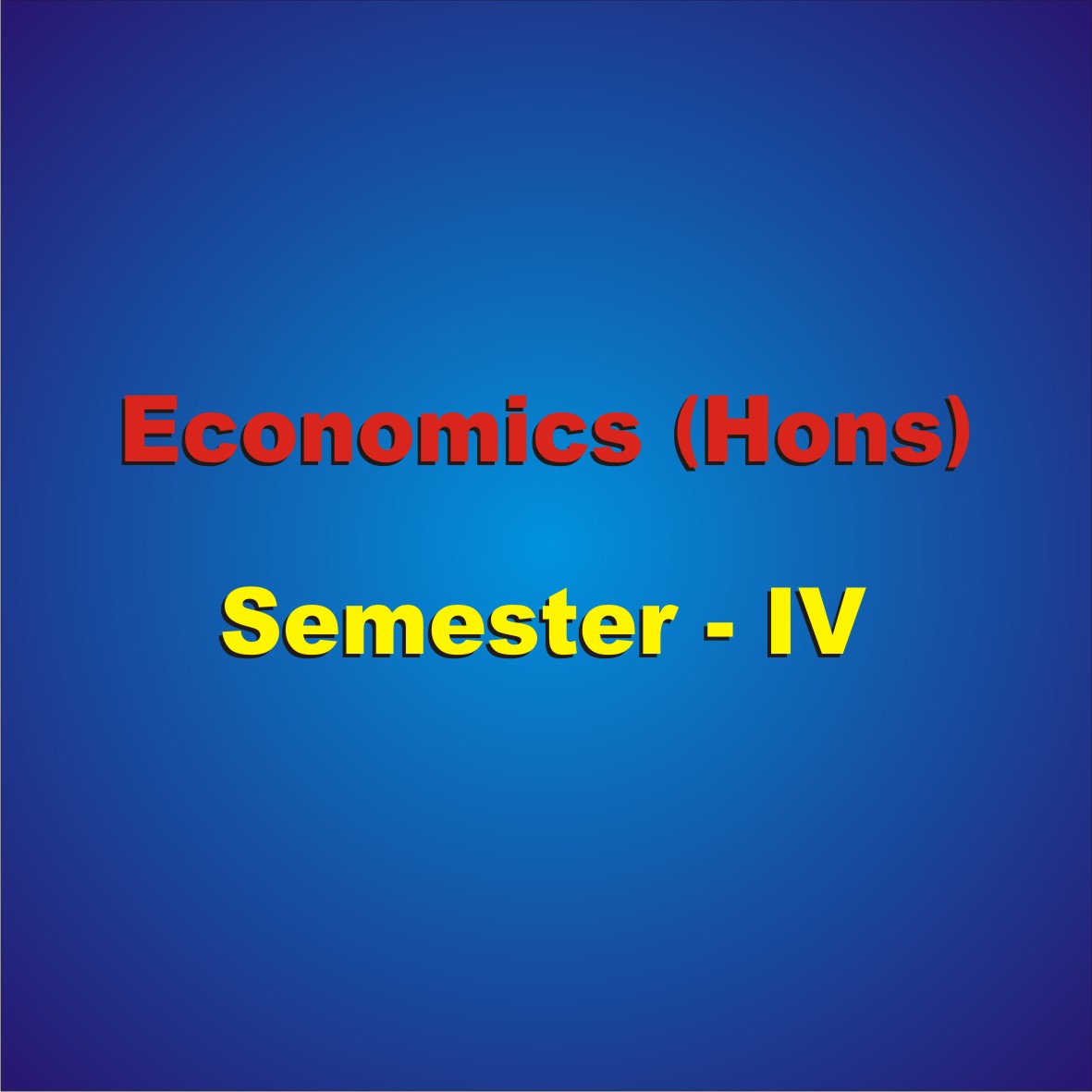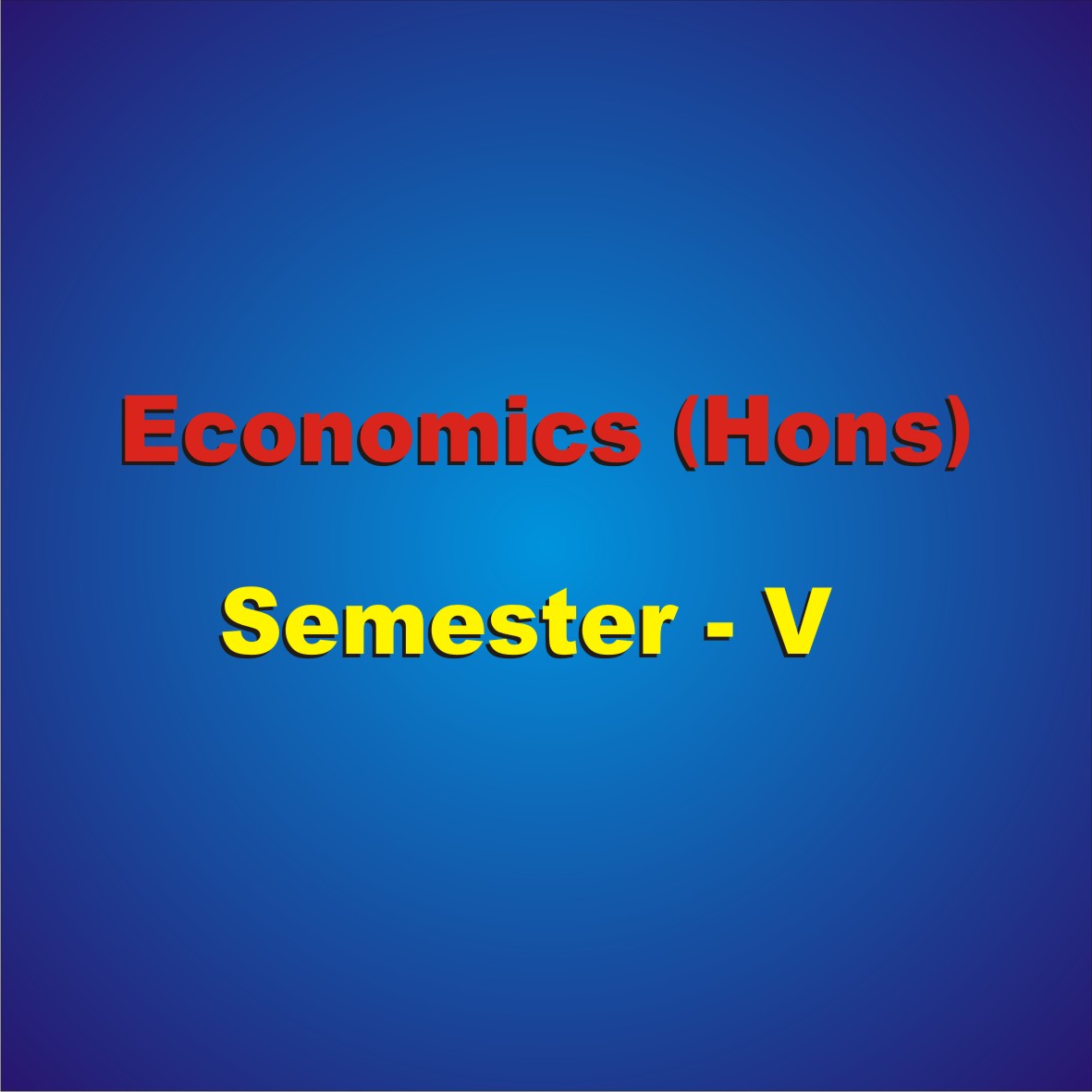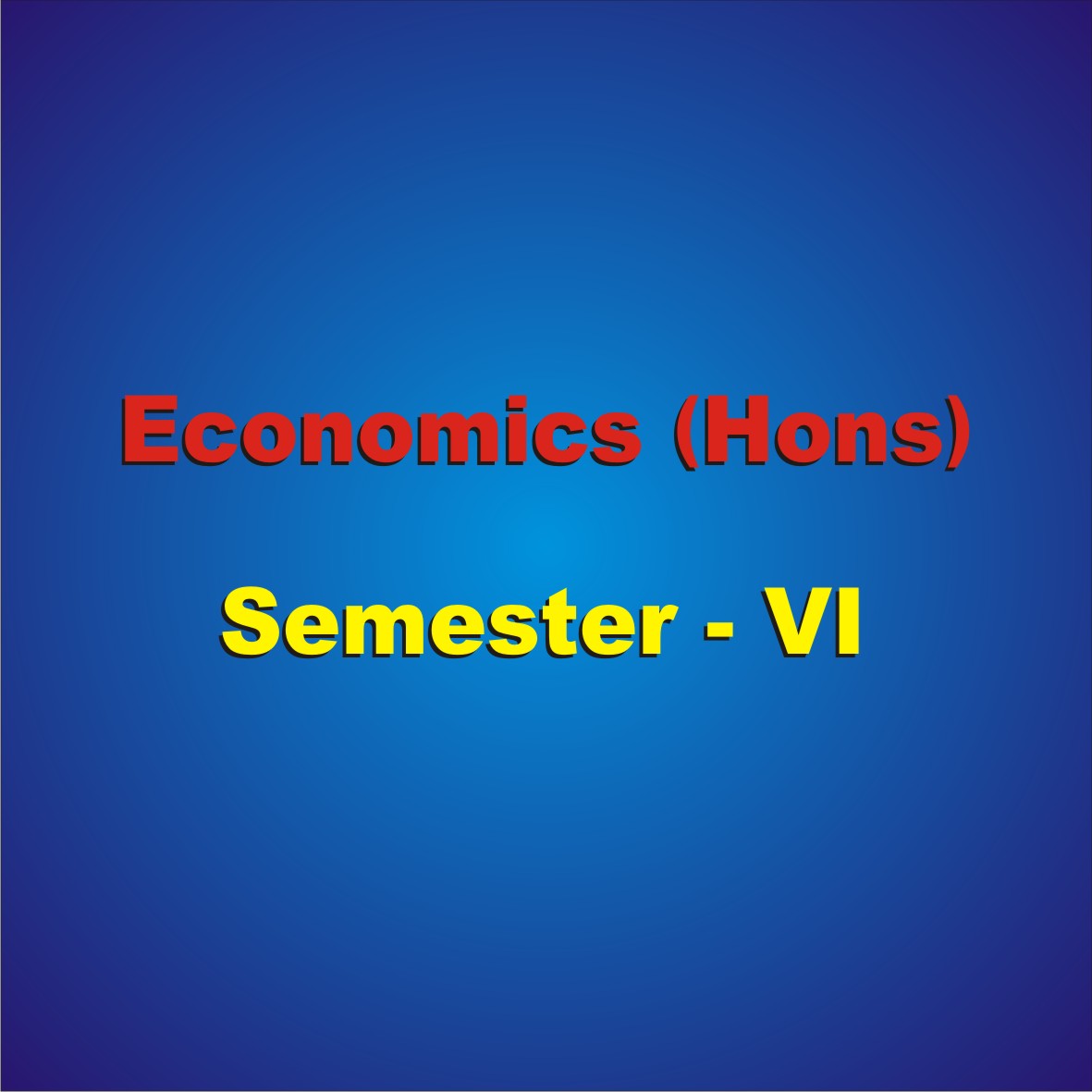Introductory Mathematical Methods for Economics (ECON 002)
Welcome to Prime Academy
We provide Best Online Coaching for Introductory Mathematical Methods for Economics [ECON 002] for Economics (H) Semester I, University of Delhi, 2024
For getting access of recorded video lectures of
Introductory Mathematical Methods for Economics (ECON 002) for Economics (H) Semester I, UGCF 2022, University of Delhi
you need to subscribe our course.
If you are not registered at our website then Register Here
(After registration please inform us at +91 9899 192027 to get the access)
If you are already registered and have Got the access then Login to watch the Lectures
The Introductory Mathematical Methods for Economics (ECON 002) Course for BA (Hons) Economics Semester I, UGCF 2022, Delhi University has been taught by Mr. Dheeraj Suri. The Video Lectures are based upon the books prescribed by the University of Delhi. The Duration of Video Lectures is approximately 50 Hours.
Access of Video Lectures is provided on any one of the following devices:
Windows Computer or Laptop, or
Android Phone or Tablet, or
Apple Iphone or Ipad, or
Apple Macbook,
till end of Semester I Exams.
Course Fee for Introductory MME : Rs. 6,000
Fee Structure for Semester 1 :
| Single Device | Two Devices | |
|---|---|---|
| Single Subject | Rs. 6000 | Rs. 10,000 |
| Two Subjects | Rs. 11,500 | Rs. 19,000 |
| Three Subjects | Rs. 16,500 | Rs. 27,000 |
| Four Subjects | Rs. 21,000 | Rs. 35,000 |
Once You get the access you need to login and download our APP and all the lectures from your login account and play in your device.
You will get :
►Full Course Video Lectures
►Complete Study Material (PDF Notes) which includes Concepts, Previous Year Questions, Numerical Questions, MCQ’s and Important Questions
►Live Online Doubts Sessions with Expert Faculty (at least twice a week) for resolution of Doubts
►Online Discussion Forum to Post Your Queries to Discuss with Faculty & other fellow Students
►Mock Tests at the Website for regular assessment and progress tracking
►Video Lectures Cover Theory Portions Exhaustively + Complete Solutions of Back Questions of Readings + Solutions of Previous Years Papers + Large Number of Numericals
►Comprehensive Coverage of Syllabus and Exam Oriented Preperation
This online coaching platform aims to provide a supportive and engaging learning environment for students to achieve academic success and excel in their Economics Honours program.
Demo PDF Notes
Click here for Demo PDF of Study Material
For Complete PDF Notes of Introductory Mathematical Methods for Economics
Contact us at +91 9899192027
Demo Quiz
For Complete Mock Test Series of Introductory Mathematical Methods for Economics, You need to subscribe our course.
Contact us at +91 9899192027
Reading List
Click Here for Reading List of Introductory Mathematical Methods for for Economics
Recommended Readings
►Sydsaeter, K., Hammond, P. (2002). Mathematics for economic analysis. Pearson Education.
Demo Lectures for Introductory Mathematical Methods for Economics (MME)
Course Introduction
Chapter 1 : Preliminaries
Chapter 4 : Limits, Continuity & Series
Previous Year Question Papers : PYQ’s
These Lectures are Only for Demo.
For Complete Course Video Lectures You Need to Subscribe Our Course
Contact us at +91 9899192027 for details
Exam Pattern
The End Semester Question Paper will be of 90 Marks
The assessment process comprises three distinct parts, and the ensuing pattern will be adhered to:
1. Internal Assessment (IA) : 30 Marks
►Two class test (12 marks each), and
► 6 marks for attendance
2. Continuous Assessment (CA) : 40 Marks
► 1 Problem Solving for 10 marks
► At least 2 quizzes/assignments, adding up to total 25 marks.
► 5 Marks for attendance.
3. The end semester exam: 90 Marks
► There will not be multiple sections.
► There will be 10 questions (each of 10 marks), out of which 9 must be answered. A question may have no more than 2 sub-parts.
► The coverage of material in the exam will roughly correspond to the unitwise weights in terms of teaching times.
► The exam-setter should meet the department moderators before setting the exam in order to discuss the pattern of questions and leave ample time for moderation after the draft exam is prepared.
On Payment of Fee we will create your account on our website & you need to login and download all the lectures & our APP through that login account
How to Join our Coaching Classes
1. Fee Deposit
Kindly deposit the fee using the following payment details
3. Details
Share the payment details & your login id through Whatsapp at +91 9899192027
4. Need Help
Reach us at +91 9899192027
Payment Details
To purchase any course you need to transfer the amount either through Google Pay or PhonePe at 9811261671 or Paytm at 9899192027 or Transfer through net banking IMPS into the following account
Account Details
Dheeraj Suri
Saving Account Number
392010100053871
Axis Bank, Model Town Branch
Delhi – 110009
IFS Code : UTIB0000392
Payment App Details
GPay Number : +91 9811261671
PhonePe Number : +91 9811261671
Paytm Number : 9899192027
After transfer update us with payment details through Whatsapp at +91 9899192027
Course Content of Our Video Lectures
The Lectures are as per the Latest Syllabus Prescribed by DU for UGCF 2024- 25
Unit – I : Preliminaries
Chapter 1 : Preliminaries
Duration of Lectures : 379 Minutes
Number of Lectures : 11
Based Upon Hammond Chapter 1
Topics Covered
►Real Numbers, Natural Numbers, Integers, Rational Numbers, Irrational Numbers
►Intervals, Inequalities, Sign Diagram,
►Inequalities, Absolute Value
►Linear Inequalities in Two Variables.
►Proposition, Propositional Connectives, Implication, Bi implication, Necessary & Sufficient Conditions, Truth Tables
►Direct Proof, Indirect Proof, Proof by contradiction,
►Deductive and Inductive Reasoning
►Sets Introduction, Operations on Sets,
►Convex Sets,
►Cartesian Product of Sets,
►Relations,
Unit – 2 : Functions of One Real Variable
Chapter 2 : Functions of One Variable
Duration of Lectures : 452 Minutes
Number of Lectures : 10
Based Upon Hammond Chapter 2
Topics Covered
►Distance Formula, Section Formula, Area of a Triangle, Slope of a Line, Equation of a Line, Equation of Circle,
►Equation of Circle, Equation of Parabola,
►Rectangular Hyperbola
►Functions Introduction,
►Injection, Surjection, Bijection,
►Domain & Range of Functions,
►Linear and Quadratic Functions,
►Greatest Integer Function, Modulus Function, Rational Function, Signum Function,
►Graph of a Function,
►Inverse of a Function,
Chapter 3 : Polynomials, Powers & Exponentials
Duration of Lectures : 399 Minutes
Number of Lectures : 7
Based Upon Hammond Chapter 3
Topics Covered
►Quadratic Functions,
►Quadratic Optimization,
►Polynomials,
►Power Functions,
►Economic Application of Functions,
►Exponential & Logarithmic Functions,
►Applications of Exponential & Logarithmic Functions,
Chapter 4 : Single Variable Differentiation
Duration of Lectures : 170 Minutes
Number of Lectures : 5
Based Upon Hammond Chapter 4
Topics Covered
►Slope of Tangent to Curve & Differentiation, Newton Quotient,
►Simple Differentiation,
►Rates of change and their economic significance,
►A Dash of Limits,
►Second & Higher Order Derivatives,
Chapter 5 : More on Differentiation
Duration of Lectures : 290 Minutes
Number of Lectures : 8
Based Upon Hammond Chapter 5
Topics Covered
►Generalized Power Rule,
►Chain Rule,
►Implicit Differentiation,
►Linear Approximation,
►Polynomial Approximation,
►Taylors Rule, Newton Binomial Formula
►Elasticity of Functions,
►Elasticity of Demand, Elasticity of Supply, Elasticity of Cost,
Chapter 6 : Limits, Continuity & Series
Duration of Lectures : 575 Minutes
Number of Lectures : 12
Based Upon Hammond Chapter 6
Topics Covered
►Limits Introduction,
►Special Limits,
►Logarithmic Limits,
►L’Hôpital’s Rule, Limits at Infinity,
►Sequences & Infinite Series, Convergence & Divergence,
►Present Value,
►Asymptotes, Horizontal Asymptotes, Vertical Asymptotes & Oblique Asymptotes
►One Sided Limits,
►Continuity,
►Differentiability
Chapter 7 : Implications of Continuity & Differentiability
Duration of Lectures : 280 Minutes
Number of Lectures : 7
Based Upon Hammond Chapter 7
Topics Covered
►Intermediate Value Theorem,
►Extreme Value Theorem,
►Mean Value Theorem,
►Monotonic Functions,
►Equation of a Tangent and Normal,
►Taylor’s Formula & Newton Binomial Formula,
►Inverse Functions,
Chapter 8 : Exponential & Logarithmic Functions [330 Minutes]
Duration of Lectures : 330 Minutes
Number of Lectures : 9
Based Upon Hammond Chapter 8
Topics Covered
►The Natural Exponential Function,
►The Natural Logarithmic Function,
►Logarithmic Differentiation,
►Differentiation of Infinite Series,
►Parametric Differentiation,
►Generalizations,
►Applications of Exponentials & Logarithms,
►Compound Interest & Present Discounted Value,
Unit – 3 : Single Variable Optimization
Chapter 9 : Single Variable Optimization
Duration of Lectures : 520 Minutes
Number of Lectures : 14
Based Upon Hammond Chapter 9
Topics Covered
►Extreme Value Theorem,
►Absolute Maximum & Minimum,
►Local Maxima & Minima,
►Global Maximum & Minimum,
►Curvature,
►Jensen’s Inequality,
►Curve Sketching,
►Economic Applications of Maxima & Minima,
►Cost Functions, Revenue Functions,
►Cost Minimization, Revenue Maximization, Profit Maximization,
►Effect of Tax and Subsidy,
End of Syllabus
